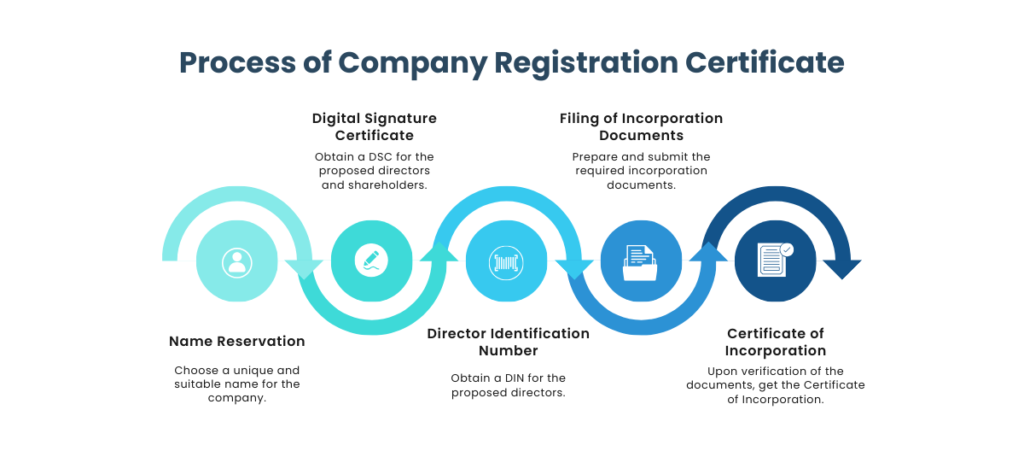Company Registration Certificate: Unlocking Legitimacy and Success
In the dynamic world of business, establishing a company is a pivotal step towards growth and sustainability. A Company Registration Certificate, also known as a Certificate of Incorporation, is a crucial document that officially recognizes a business entity as a legal and distinct entity. This article delves into the importance and benefits of obtaining a Company Registration Certificate, shedding light on the process involved in acquiring this essential document in India.
Importance of a Company Registration Certificate
A Company Registration Certificate holds immense significance in the business landscape. It is not merely a piece of paper but a testament to the formal existence of a business entity. By obtaining this certificate, a company gains legal recognition and attains a separate legal identity apart from its owners. This legal recognition is fundamental for conducting business transactions, entering contracts, and enjoying various legal privileges.
Furthermore, a Company Registration Certificate instills confidence among stakeholders, including customers, investors, and partners. It assures the legitimacy and credibility of the business, fostering trust and reliability in the eyes of the market.
Benefits of Obtaining a Company Registration Certificate
- Legal Recognition and Limited Liability:
A Company Registration Certificate grants a business the status of a separate legal entity, ensuring that it can enter into contracts, own assets, and sue or be sued in its name.
Shareholders enjoy limited liability, protecting their assets in case of business debts or legal issues.
- Access to Funding and Investments:
Many investors and financial institutions prefer to invest in registered companies, considering them more stable and trustworthy.
A Company Registration Certificate opens doors to various funding opportunities, including loans, venture capital, and public offerings.
- Brand Building and Market Credibility:
Having a Company Registration Certificate enhances the credibility of a business in the eyes of clients, suppliers, and partners.
It contributes to the company’s professional image, fostering a positive perception in the market.
- Tax Advantages:
Registered companies often benefit from tax incentives and exemptions, promoting financial growth and sustainability.
Companies can also use various tax planning strategies to optimize their financial performance.

Process of Obtaining a Company Registration Certificate in India
Acquiring a Company Registration Certificate in India involves a systematic process. Here’s a brief overview:
Name Reservation: Choose a unique and suitable name for the company and submit it to the Ministry of Corporate Affairs (MCA) for approval.
Digital Signature Certificate (DSC): Obtain a DSC for the proposed directors and shareholders to facilitate the online filing of documents.
Director Identification Number (DIN): Obtain a DIN for the proposed directors by submitting the necessary documents to the MCA.
Filing of Incorporation Documents: Prepare and submit the required incorporation documents, including the Memorandum of Association (MOA) and Articles of Association (AOA).
Certificate of Incorporation: Upon verification of the documents, the Registrar of Companies issues the Certificate of Incorporation, officially recognizing the company’s existence.
Conclusion:
In the intricate tapestry of business, a Company Registration Certificate stands as a testament to a company’s legal identity and credibility. Beyond mere formality, it opens doors to a plethora of benefits, including legal recognition, financial opportunities, and market trust. For businesses in India, navigating the process of obtaining this certificate is a pivotal step toward long-term success and sustainability. Aspiring entrepreneurs should recognize the invaluable role of a Company Registration Certificate in shaping the destiny of their ventures.

